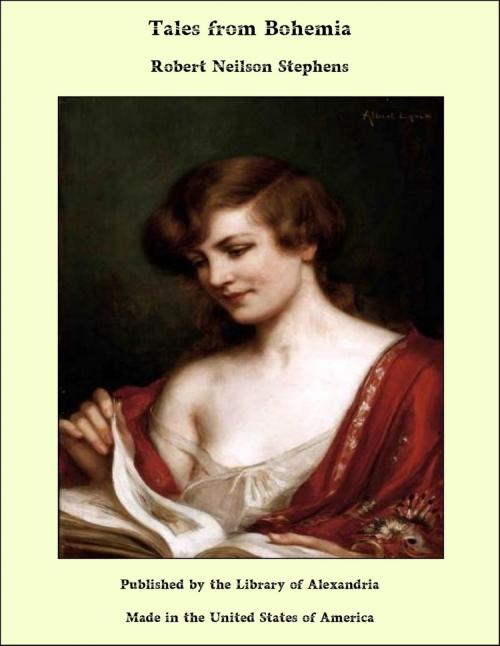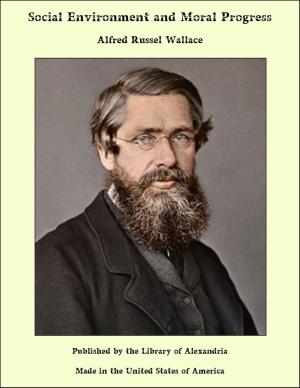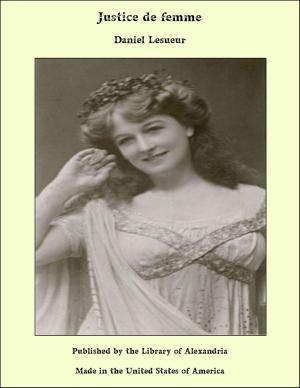| Author: | Robert Neilson Stephens | ISBN: | 9781465616753 |
| Publisher: | Library of Alexandria | Publication: | March 8, 2015 |
| Imprint: | Language: | English |
| Author: | Robert Neilson Stephens |
| ISBN: | 9781465616753 |
| Publisher: | Library of Alexandria |
| Publication: | March 8, 2015 |
| Imprint: | |
| Language: | English |
When Jack Morrow returned from the World's Fair, he found Philadelphia thermometers registering 95. The next afternoon he boarded a Chestnut Street car, got out at Front Street, hurried to the ferry station, and caught a just departing boat for Camden, and on arriving at the other side of the Delaware, made haste to find a seat in the well-filled express train bound for Atlantic City. While he was being whirled across the level surface of New Jersey, past the cornfields and short stretches of green trees and restful cottage towns, he thought of the pleasure in store for him—the meeting with the young person whom he had gradually come to consider the loveliest girl in the world. Having neglected to read the list of "arrivals" in the newspapers, he knew not at what hotel she and her aunt were staying. But he would soon make the rounds of the large beach hotels, at one of which she was likely to be found. She did not expect to see him. Therefore her first expression on beholding him would betray her feelings toward him, whatever they were. Should the indication be favourable, he would propose to her at the first opportunity, on beach, boardwalk, hotel piazza, pavilion, yacht or in the surf. Such were the meditations of Jack Morrow while the train roared across New Jersey to the sea. The first sign of the flat green meadows, the smooth waters of the thoroughfare, the sails afar at the inlet and the long side of the sea-city stretching out against the sky at the very end of the earth is refreshing and exhilarating to any one. It gave a doubly keen enjoyment to Jack Morrow. "Within an hour, perhaps," he mused, as the reviving odour of the salt water touched his nostrils, "I shall see Edith." When with the crowd he had made his way out of the train, and traversed the long platform at the Atlantic City station, ignoring the stentorian solicitations of the 'bus drivers, he started walking toward the ocean promenade, invited by the glimpse of sea at the far end of the avenue. Thus he crossed that wide thoroughfare—Atlantic Avenue—with its shops and trolley-cars; passed picturesque hotels and cottages; crossed Pacific Avenue where carriages and dog-carts were being driven rapidly between the rows of pretty summer edifices, and traversed the famously long block that ends at the boardwalk and the strand. He succeeded in getting a third-floor room on the ocean side of the first hotel where he applied. He learned from the clerk that Edith was not at this house. Sea air having revived his appetite, he decided to dine before setting out in search of her. When, after his meal, he reached the boardwalk, the electric lights had already been turned on and the regular evening crowd of promenaders was beginning to form. He strolled along now looking at the beach and the sea, now at the boardwalk crowd where he might perhaps at any moment behold the face of "the loveliest girl in the world." He beheld instead, as he approached the Tennessee pier, the face of his friend George Haddon.
When Jack Morrow returned from the World's Fair, he found Philadelphia thermometers registering 95. The next afternoon he boarded a Chestnut Street car, got out at Front Street, hurried to the ferry station, and caught a just departing boat for Camden, and on arriving at the other side of the Delaware, made haste to find a seat in the well-filled express train bound for Atlantic City. While he was being whirled across the level surface of New Jersey, past the cornfields and short stretches of green trees and restful cottage towns, he thought of the pleasure in store for him—the meeting with the young person whom he had gradually come to consider the loveliest girl in the world. Having neglected to read the list of "arrivals" in the newspapers, he knew not at what hotel she and her aunt were staying. But he would soon make the rounds of the large beach hotels, at one of which she was likely to be found. She did not expect to see him. Therefore her first expression on beholding him would betray her feelings toward him, whatever they were. Should the indication be favourable, he would propose to her at the first opportunity, on beach, boardwalk, hotel piazza, pavilion, yacht or in the surf. Such were the meditations of Jack Morrow while the train roared across New Jersey to the sea. The first sign of the flat green meadows, the smooth waters of the thoroughfare, the sails afar at the inlet and the long side of the sea-city stretching out against the sky at the very end of the earth is refreshing and exhilarating to any one. It gave a doubly keen enjoyment to Jack Morrow. "Within an hour, perhaps," he mused, as the reviving odour of the salt water touched his nostrils, "I shall see Edith." When with the crowd he had made his way out of the train, and traversed the long platform at the Atlantic City station, ignoring the stentorian solicitations of the 'bus drivers, he started walking toward the ocean promenade, invited by the glimpse of sea at the far end of the avenue. Thus he crossed that wide thoroughfare—Atlantic Avenue—with its shops and trolley-cars; passed picturesque hotels and cottages; crossed Pacific Avenue where carriages and dog-carts were being driven rapidly between the rows of pretty summer edifices, and traversed the famously long block that ends at the boardwalk and the strand. He succeeded in getting a third-floor room on the ocean side of the first hotel where he applied. He learned from the clerk that Edith was not at this house. Sea air having revived his appetite, he decided to dine before setting out in search of her. When, after his meal, he reached the boardwalk, the electric lights had already been turned on and the regular evening crowd of promenaders was beginning to form. He strolled along now looking at the beach and the sea, now at the boardwalk crowd where he might perhaps at any moment behold the face of "the loveliest girl in the world." He beheld instead, as he approached the Tennessee pier, the face of his friend George Haddon.















